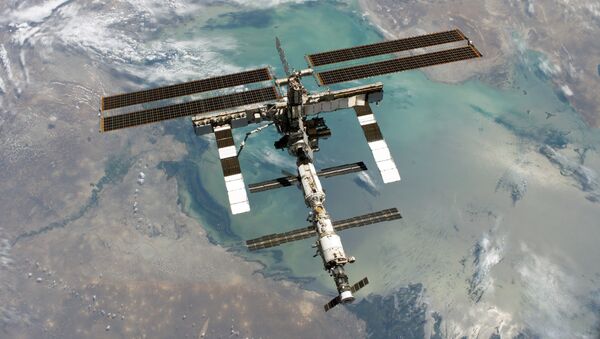WASHINGTON, August 20 (RIA Novosti) – A consortium of 12 space agencies, including NASA and Roscosmos, on Tuesday released a blueprint for future space exploration, which proposes using the International Space Station (ISS) as a stepping stone for sending human missions deeper into space, including to Mars.
The “Global Exploration Roadmap”, which was published on NASA’s website, “identifies a conceptual mission scenario that demonstrates how missions in the lunar vicinity, including the asteroid mission, prepare for international missions to Mars in the 2030 timeframe, while enabling important discoveries along the way,” NASA Administrator Charles Bolden told a news conference.
The International Space Exploration Coordination Group (ISECG), which put together the roadmap, said it “reflects a common long-range human exploration strategy that begins with the ISS and expands human presence into the solar system, leading to human missions on the surface of Mars.”
“Human exploration of the moon, asteroids and Mars will strengthen humanity’s future, bringing nations together in a common cause, revealing new knowledge, inspiring people, and stimulating innovation,” it said.
The ISECG called in the report for the ISS to be used as “the foundation of exploration” and for international cooperation to be the hallmark of missions as humans push deeper into space.
“Exploration missions will be at much greater distances from Earth, necessitate longer astronaut stays in space, and present new risks,” the report said.
“The ISS is well suited to address these challenges.”
Bolden said the ISS was “emblematic of the growing importance of international cooperation as humans seek to travel farther into the solar system than we have ever gone before.”
The report also proposed new missions to the moon and came out in favor of a project proposed by President Barack Obama in April, to capture and redirect an asteroid, which Republican lawmakers have called costly and complex and threatened to relegate to the trash can before it gets off the ground.
Extended duration missions to the moon and “missions to an easily accessible asteroid will enable discoveries and allow demonstration of the transportation, habitation, robotic servicing and other key systems on which long-duration missions into deep space must rely,” the report said.
In addition to NASA and Roscosmos, the space agencies of Canada, France, Germany, India, Italy, Japan, South Korea, the United Kingdom, Ukraine and the European Space Agency helped to put together the space exploration roadmap.
The space agencies involved do not have to take part in every element or mission outlined in the roadmap, but all are expected to benefit from being a part of it.




